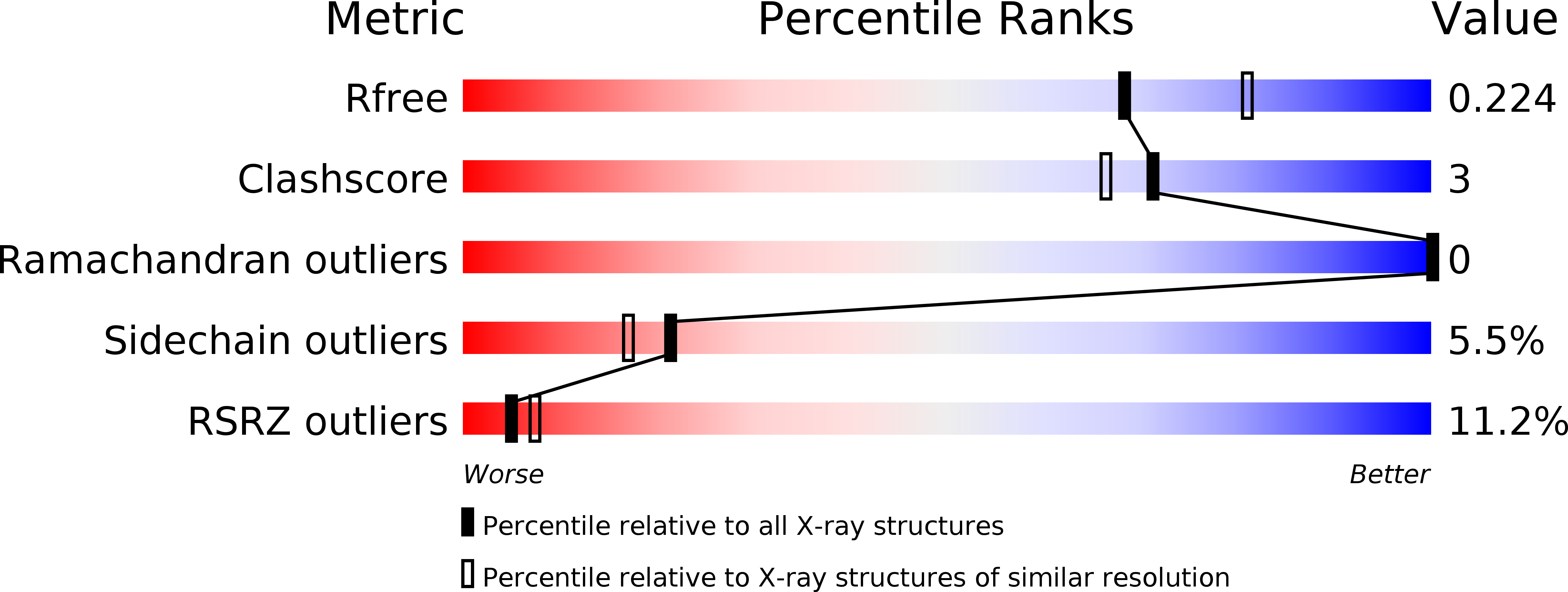
Deposition Date
2015-03-12
Release Date
2015-07-15
Last Version Date
2024-03-20
Entry Detail
PDB ID:
4YOT
Keywords:
Title:
Crystal structure of a trimeric exonuclease PhoExo I from Pyrococcus horikoshii OT3 at 2.15A resolution
Biological Source:
Source Organism(s):
Pyrococcus horikoshii (Taxon ID: 53953)
Expression System(s):
Method Details:
Experimental Method:
Resolution:
2.15 Å
R-Value Free:
0.22
R-Value Work:
0.18
R-Value Observed:
0.18
Space Group:
P 21 21 21


